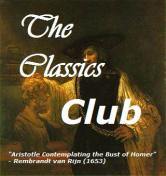 Gracianna
Trini Amador
2013
Greenleaf Book Group Press
269 pages
Gracianna
Trini Amador
2013
Greenleaf Book Group Press
269 pages
'And he knew Gracianna was an energy mass that attracted like a gravitational pull - she was constantly moving ahead, gathering energy and emotions along the way.'
It has actually become increasingly rare for a book to have such a hold on me that I stay up until two in the morning to finish it. But that happened last week with Gracianna. What a book. It was worth looking a bit haggard and being completely exhausted the next day, without a doubt.
Gracianna tells the story of Trini Amador's great-grandmother Gracianna Lasaga:
'Gracianna bravely sets off to Paris in the early 1940s–on her way to America, she hopes–but is soon swept into the escalation of the war and the Nazi occupation of Paris. After chilling life-and-death struggles, she discovers that her missing sister has surfaced as a labourer in Auschwitz. When she finds an opportunity to fight back against the Nazis to try to free her sister, she takes it–even if it means using lethal force.'
The scope of the novel is quite huge - we get a sense of Gracianna's life and character from her time in Basque country through to her move to Paris and after. I really appreciated getting to know Gracianna as a person before she is flung into this crazy world of death and intrigue. It made her seem more of a whole person and therefore one I could empathise with. It also makes the events of the novel seem even more shocking. To see a young girl grow up in the country, move to Paris and then play a key role in the resistance reflected the truth of the matter and introduced me to a whole new side of the French resistance. As a character, Gracianna is more than interesting. She is strong, wilful and courageous but above all she is hopeful and optimistic even in situations that, to an objective outsider, seem entirely hopeless. I think if you want to be inspired and invigorated by one woman's courage then I'd recommend reading this.
There were a couple of little niggly things within the structure that came to the fore occasionally but, with a story as good as this, structural niggles can be overlooked. Some of the language was wonderful and the way Amador wormed his way into the heads of his characters was particularly delightful. Considering the family connection and the amount of truth in the story, I think it is a difficult task that Amador has managed with skill.
Aside from reading one other novel that features Basque culture, I pretty much knew nothing about it before reading Gracianna. It seems that Basque is synonymous with so many different attributes, all of which are demonstrated in Gracianna and Juan. It was interesting to learn about a culture at the same time as delving into a story. All the basque proverbs quoted throughout were a joy to read and some I will apply to my own life: 'Those who don't look forward, stay behind'.
Perhaps the most heartwarming aspects of the novel are the sections involving Gracianna's great capacity to love and to love in such a flawed, human way. We all make mistakes in our relationships, be they family or romantic. The two great relationships in this novel are Gracianna and Juan's and Gracianna and Constance's. It is her relationship with her sister Constance that determines the action she takes and the unusual path she chose in the resistance. But it is her relationship with Juan and his unwavering devotion to her that really got me.
For an inspiring, heartfelt and courageous read I would rate Gracianna highly. I challenge anyone not to fall a little bit in love with Gracianna and her strength.










